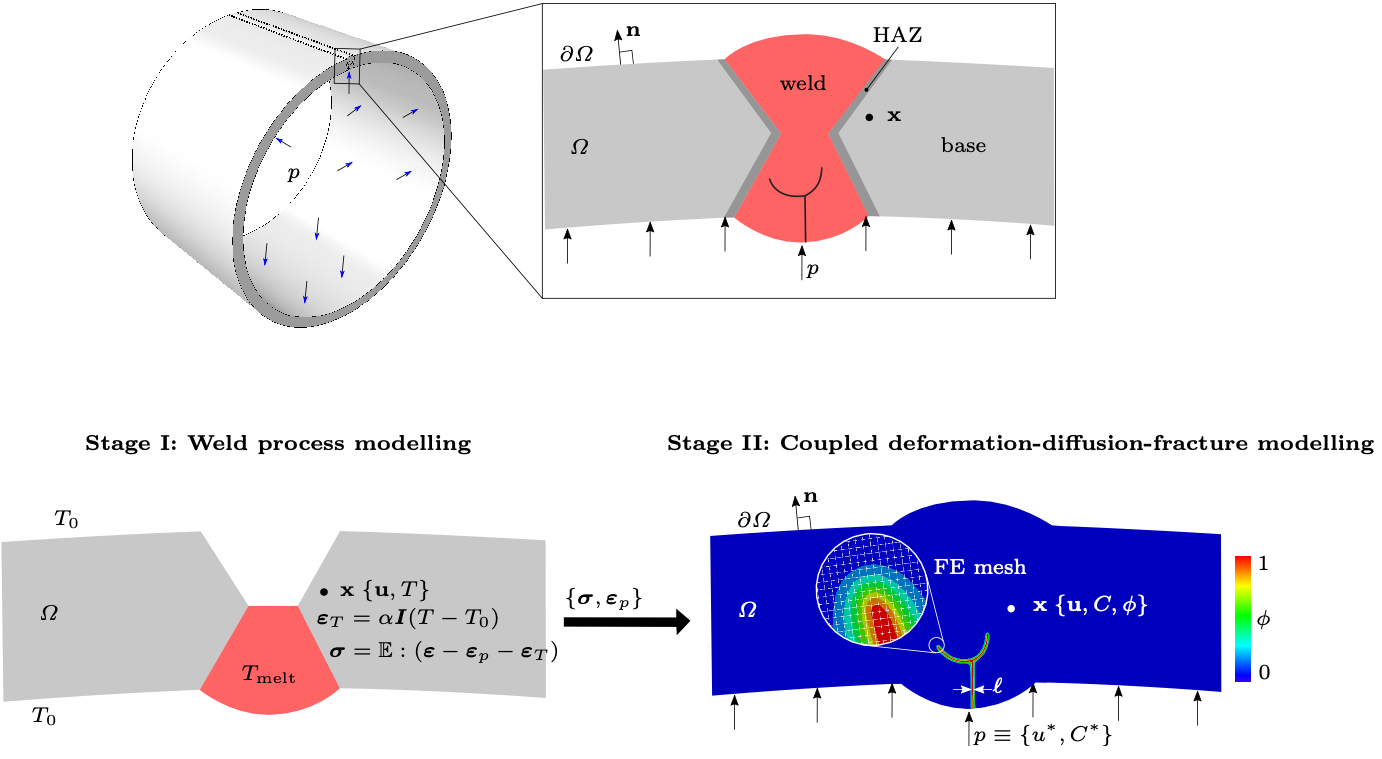As a Postdoctoral Research Associate at Imperial College London, I contributed to an EPRI (Electric Power Research Institute, USA)-funded project focused on developing advanced computational frameworks to evaluate the structural integrity of welded joints in hydrogen transport pipelines. The research addressed environment-assisted failures, particularly hydrogen embrittlement (HE) and stress corrosion cracking (SCC), which pose significant risks in hydrogen infrastructure.
My work involved coupling welding process models with diffusion-fracture mechanics using phase-field modelling and high-fidelity finite element simulations. The modelling framework incorporated microstructural heterogeneity, residual stresses, and hydrogen diffusion effects, enabling accurate prediction of crack initiation and propagation under realistic loading and environmental conditions. As part of this work, I developed a customised computational implementation in ABAQUS, enhancing its capabilities for coupled residual stress-informed diffusion-fracture problems.

This research resulted in a key publication in the International Journal of Hydrogen Energy: Mandal, T.K., Parker, J., Gagliano, M., & Martínez-Pañeda, E. (2024). Computational predictions of weld structural integrity in hydrogen transport pipelines, IF 7.2.
This work contributed to a deeper mechanistic understanding of hydrogen-induced degradation and provided a foundation for predictive tools to support safer and more reliable hydrogen pipeline infrastructure.
